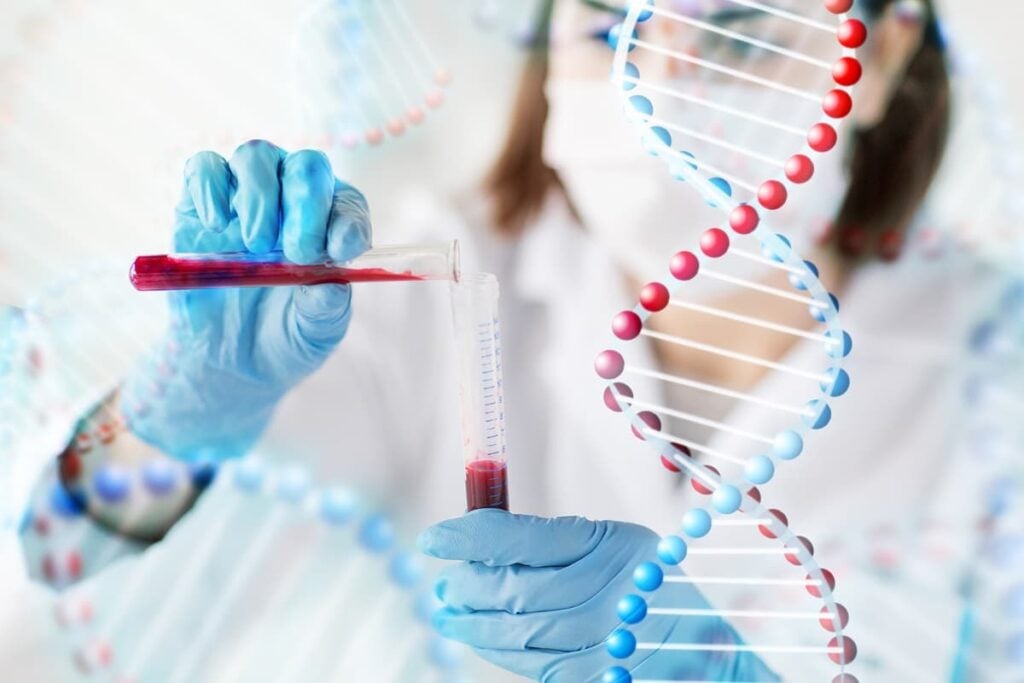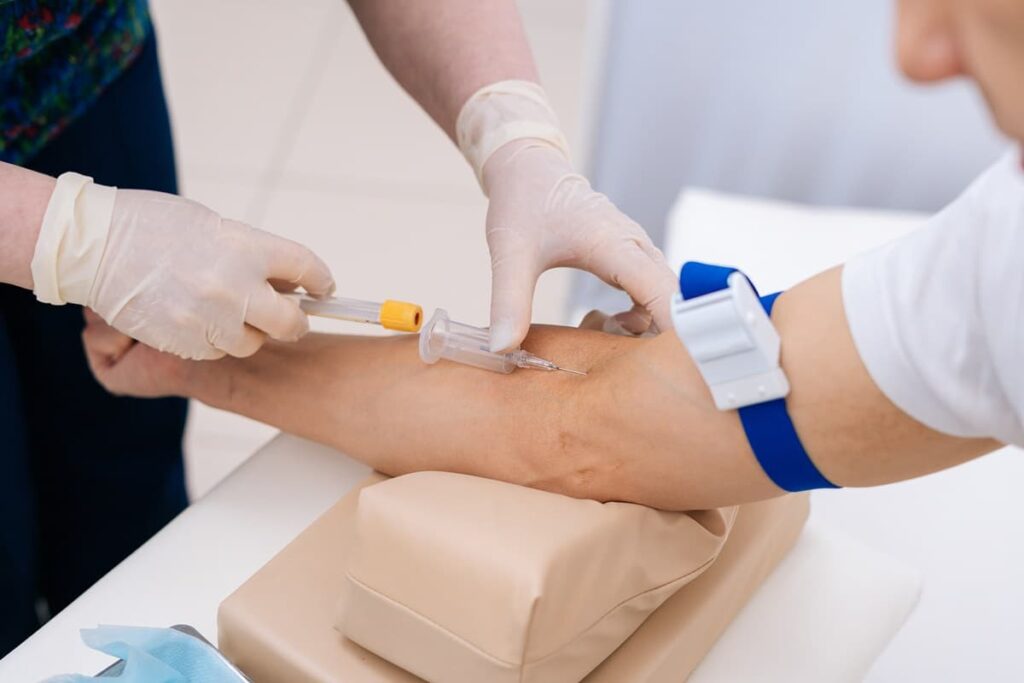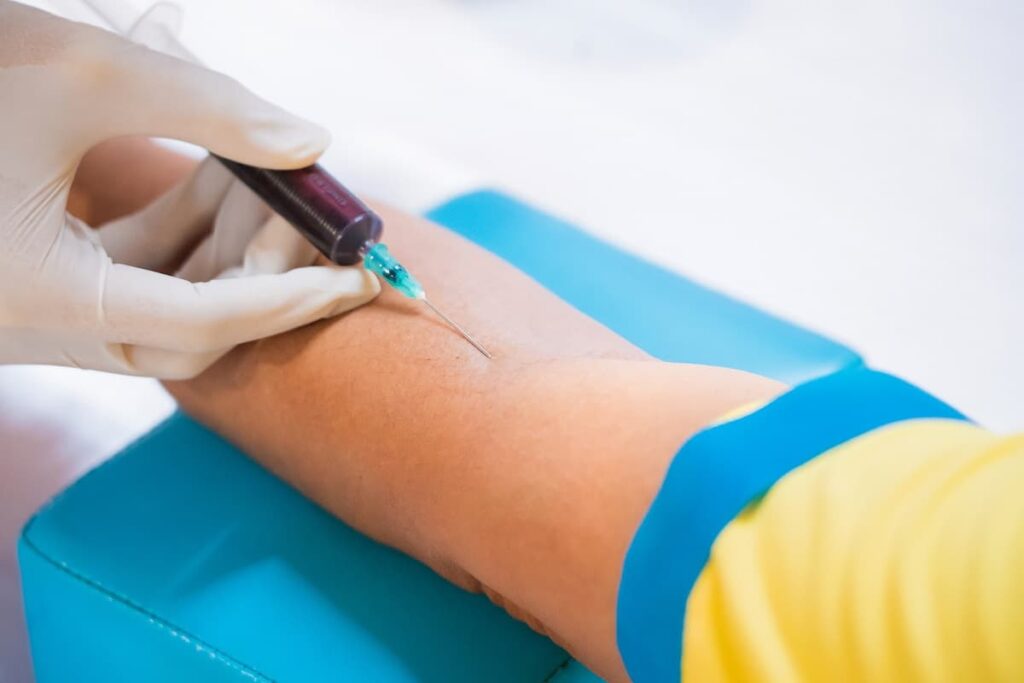8 Blood Tests for Cancer Being Developed by Startups
Table of contents

We all roll our eyes when the time comes to call our doctor’s office for our yearly physical and what is worse, most of us postpone it because we feel great. This phenomenon is so common that it is actually referred to as “patient delay”, and now there may be a very compelling reason to get into the doctor’s office – the early detection of cancer. Blood tests for cancer (also called liquid biopsies) can detect cancer cells at their earliest stage of development, and can also be used to monitor and guide treatment for people who have already been diagnosed with cancer. The area holds such promise that in addition to quite a few public companies working on cancer blood tests, there are at least 8 startups working on this as well.
In the U.S., 1 in 2 women will develop cancer and 1 in 3 men are at risk of the same. Chances are quite high that you will feel a lump or have symptoms that aren’t caught in time. Surprisingly, nearly 50% of cancer is diagnosed too late. While “patient delay” accounts for some of this statistic, medical screenings are not always sensitive enough to detect those very premature changes in our cells or they detect something that’s NOT there.
Like that false positive, some of us hope to get when our girlfriends come out of the bathroom with a pregnancy test in hand, medical screenings are riddled with them. False-positives lead to unnecessary treatments, biopsies, therapeutic intervention, and horrendous emotional distress. Current methods of early cancer detection are very limited. Imaging tests such as an ultrasound, MRI, X-ray, mammography, CT or PET scans can see masses but are unable to identify microscopic metastases or determine whether or not a tumor is benign or malignant.
Cancer blood tests will soon be a reality thanks to gene-sequencing machines that can rapidly compare the map of the normal human genome to the millions of decoded short fragments of loose DNA in the bloodstream. If there is an abnormal mutation in the DNA pattern, researchers are able to make a much earlier diagnosis. The easiest way to successfully increase survival rates among cancer patients is early detection. Here we have 8 startups that are making a major splash in the development of blood tests for cancer.
Freenome
Founded in 2014, Freenome has taken in $70.5 million in total funding to change the face of medical screening through cancer blood tests. The current goal of Freenome is to work on an FDA-approved screening that is accurate and geared towards four cancer types – breast, prostate, lung and colorectal. In a blind test, the people at Freenome were asked to categorize 5 blood samples. Through their unconventional computational approach and their biological knowledge, they correctly diagnosed 3 of the samples as Stage I, III and IV cancer and the remaining two as normal. Since then, hundreds of samples have turned into thousands of samples being diagnosed by Freenome. Their recent funding round of $65 million which closed a few weeks ago is being utilized for clinical validation which is critical in order to meet regulatory requirements.
Update 08/26/2020: Freenome has raised $270 million in Series C funding to expand its platform of industry-leading blood tests for multiple cancers. This brings the company’s total funding to $507.6 million to date.
Grail

Update 05/07/2020: Grail has raised $390 million in Series D funding to continue developing and commercializing their multi-cancer early detection blood test. This brings the company’s total funding to $2 billion to date.
Guardant Health

Pathway Genomics

The first cancer blood test coined CancerIntercept™ Detect looks for ctDNA (circulating tumor DNA), the biomarkers that indicate cancer development. If you are at high risk because of family history, have a history of smoking, or were environmentally exposed to a cancer-causing agent, then this test provides you with answers in 2-3 weeks. The second test is CancerIntercept™ Monitor for patients already diagnosed with certain cancers such as breast, colorectal, lung, ovarian, and melanoma. As the name implies, this test is specifically used for monitoring and to help determine the best oncology treatment.
Exosome Diagnostics
Founded in 2008, New York startup Exosome Diagnostics has taken in $82.08 million in 5 rounds of funding so far. Exosome Diagnostics has developed three cancer blood tests for non-small cell lung cancer and one test (through urine samples) for prostate cancer. These tests are geared towards monitoring rather than early detection. You can read more about the Exosome method of detecting cancer via blood tests in this article we wrote about them back in 2014.
Cynvenio Biosystems
Founded in 2006, California startup Cynvenio Biosystems has taken in $38.11 million in funding so far to develop a platform for early detection and ongoing monitoring. Just last month, they released their EGFR (epidermal growth factor receptor) and PSMA (prostate-specific membrane antigen) testing kits which detect circulating tumor cells (CTCs) and are now available for purchase. Both tests use a patient-friendly blood draw with the EGFR kit specifically detecting colon, neck, pancreas, kidney, and lung cancers whereas the PSMA kit is uniquely designed for prostate cancer. The second most common cancer-related death for men is prostate cancer so that’s good news for you guys. Cynvenio also offers an updated screening panel from their series of ClearID tests which is specifically designed to detect mutations in advanced stages of breast cancer.
Epic Sciences

Currently, Epic Sciences is focused on evaluating CTCs (circulating cancer cells) in over 60 clinical trials. A particular screening that falls beneath their No Cell Left Behind® detection platform is the Epic AR-V7 test. AR-V7 is a certain biomarker found in prostate cancer that is resistant to certain treatments. This is one of many groundbreaking tests eventually coming to the general public with the Epic AR-V7 currently in limited release. Their studies of the various stages of breast, lung, bladder, and prostate cancer are still ongoing.
Adaptive Biotechnologies

Conclusion
If you’re an investor in Illumina, you have to be stoked about the size and scale of their clinical study along with the fact that they are targeting early detection. In some cases, the survival rate for early cancer detection rises to 95% which would make an effective blood test for cancer the “holy grail” when it comes to finding the elusive “cure for cancer”.
In the not-so-distant future, you’ll find technology has advanced so far that merely urinating in your smart toilet will be enough to diagnose any illness or problem you can think of and your smart fridge will make sure that your morning smoothie sorts you right out. Until then, we’ll be patiently waiting for these startups to bring us blood tests for cancer so that we can detect problems earlier and finally begin to move towards a “cure for cancer”.
Sign up to our newsletter to get more of our great research delivered straight to your inbox!
Nanalyze Weekly includes useful insights written by our team of underpaid MBAs, research on new disruptive technology stocks flying under the radar, and summaries of our recent research. Always 100% free.














